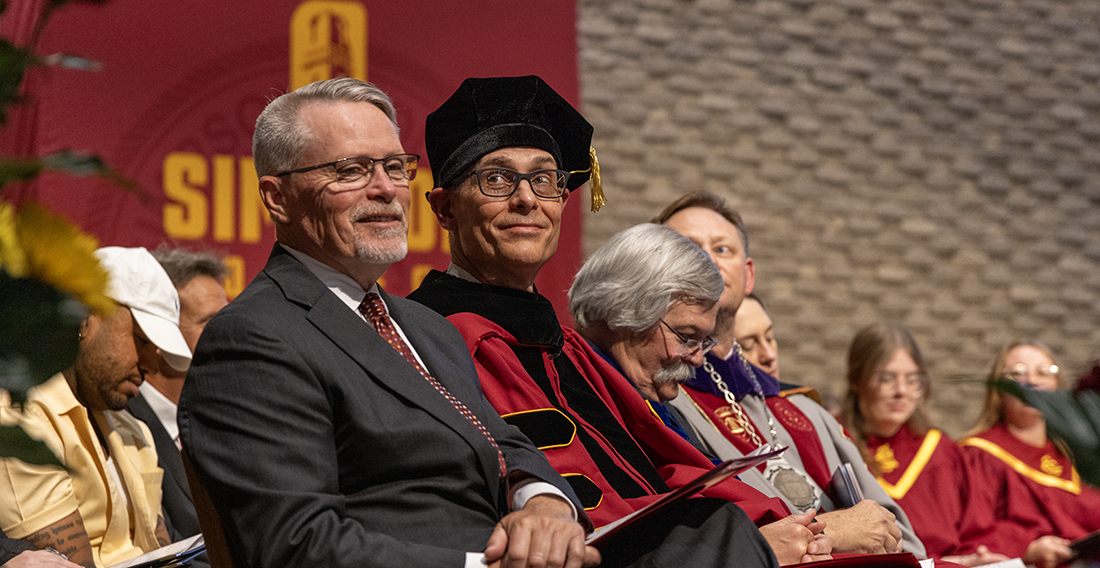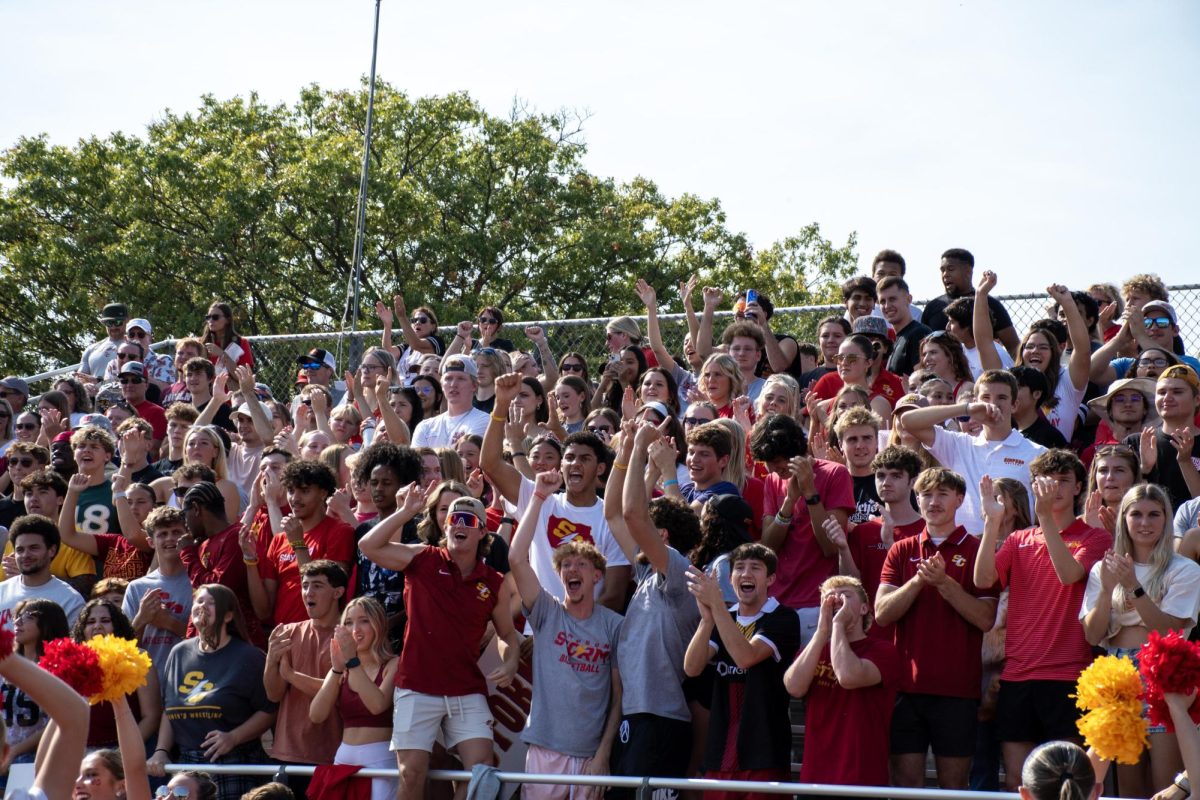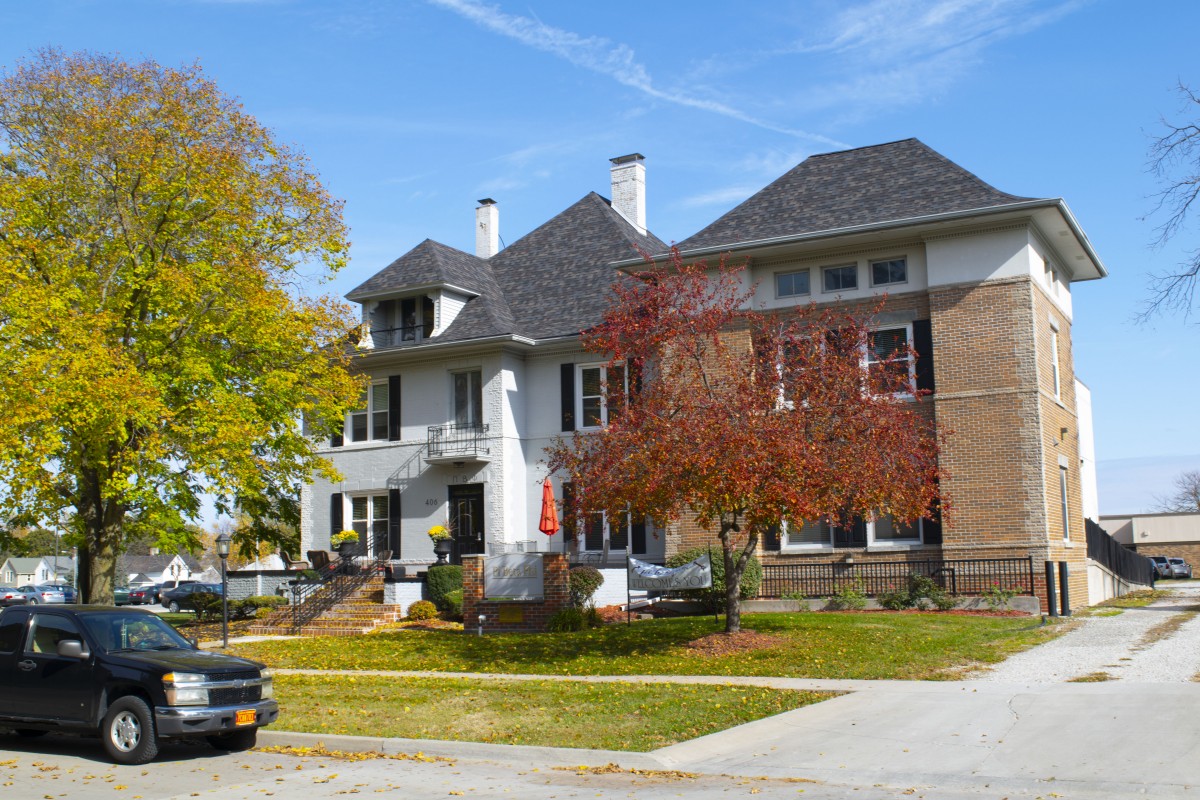Opera program ‘complex endeavor’
October 18, 2011
When I learned of the unusual faculty position I now occupy, I made a lot of inquiries into music at Simpson. I learned that it boasts an alumni body that populates the upper echelons of professional music-making, a story that has gone largely untold.
Simpson College is a remarkable place with unbeatable traditions of professional accomplishment. That is one reason, of course, why I, as a professional musician, was attracted to Simpson College in the first place, and why I was happy to commit my future, and that of my wife and children, to Iowa, which for all of us is entirely new.
In my view, Simpson College boasts the best opera program of its kind: the only undergraduate opera program in the United States that offers fully-staged productions, of both musical and technical complexity, with full orchestra, in an intimate, purpose-built theater.
It is unique. It punches massively above its weight in the number of professional singers, artistic leaders and administrators, music educators and academics it has produced. Graduates are well connected, extremely loyal and active at the highest levels of professional opera, music education and academia. This distinctiveness needs to be communicated better to the world.
My priority is to ensure that this extraordinarily high standard be continued and developed. It is not normal for a small liberal arts college to recruit so many music majors (they come here to “do” opera) or to produce so many successful graduates in a notoriously difficult professional arena.
It is an aberration, but one that should be celebrated. That music at Simpson since the 1950s has earned such a reputation in opera is an honor distinct from other undergraduate music programs around the world.
Producing a show that might involve close to 100 performers at Simpson is an enormously complex endeavor. One is required to build a community of artists, not just musicians, in a common cause. It is about leadership, because a big corporate endeavor requires it. It is about being involved in something that is bigger than one person.
It is about exploring human nature, because all of us who are in it are human and because the art form itself is a cultural representation of the best and worst of humanity. The fact that opera takes place at the level it does with undergraduates at Simpson is unique in the United States, and beyond. It should serve the whole campus.
I am therefore keen to engage with a broader creative constituency, within and outside the college. Opera in a liberal arts context can and should be a vehicle for curricular inquiry, and a catalyst for creative work, well beyond the music department. It is a phenomenon that unites all the humanities: drama, literature, languages, history, politics, sociology, art and design, costume and fashion design, technical theatre, cultural representations of gender, sexuality, violence, religion, mythology and more.
From a career development standpoint alone, there are innumerable possibilities for students in everything from non-profit management, fund-raising, marketing, public relations, arts administration, stage, set, costume and lighting design, the list goes on.
I am hoping that at Simpson I might oversee a program that not only creates professional musicians – and it does, with great success – but also provides creative and leadership opportunities for energetic and talented students and faculty beyond the music department. The skills acquired through involvement in such a hugely collaborative goal-oriented effort are transferable to all walks of life.
Music is a vocation that cannot be easily reduced to teaching loads or credit hours (in this respect and many others it is similar to athletics). In the end, only I can decide how many (hundred) hours of preparation are required to conduct a performance to the best of my ability.
I cannot prescribe how many hours a student practices per week. It is individual. It is a craft as well as an art, developed from childhood. It is a way of life. Musicians understand what it is to have a vocation.
As a teacher and mentor, I would be thrilled to help others find theirs, and I believe opera at Simpson can be a key to self-discovery. Please come to the opera, and talk to me about how you too might find a creative outlet (or curricular project) in interdisciplinary performance art. Yes, opera.
Die Fledermaus: The Revenge of the Bat by Johann Strauss II. Sung in English.
Friday October 28 and Saturday 29 at 7:30 pm; Sunday October 30 at 2 pm, Pote Theater, Blank Performing Arts Center.For tickets (Simpson faculty, staff and students get one free) call 515-961-1637. Visit www.simpson.edu/opera. Email me at [email protected]
Bernard is an Assistant Professor of Music and the Director of Opera at Simpson. He has conducted operas in both the United States and Europe and recently played piano in a recital at the Kennedy Center in Washington D.C.





